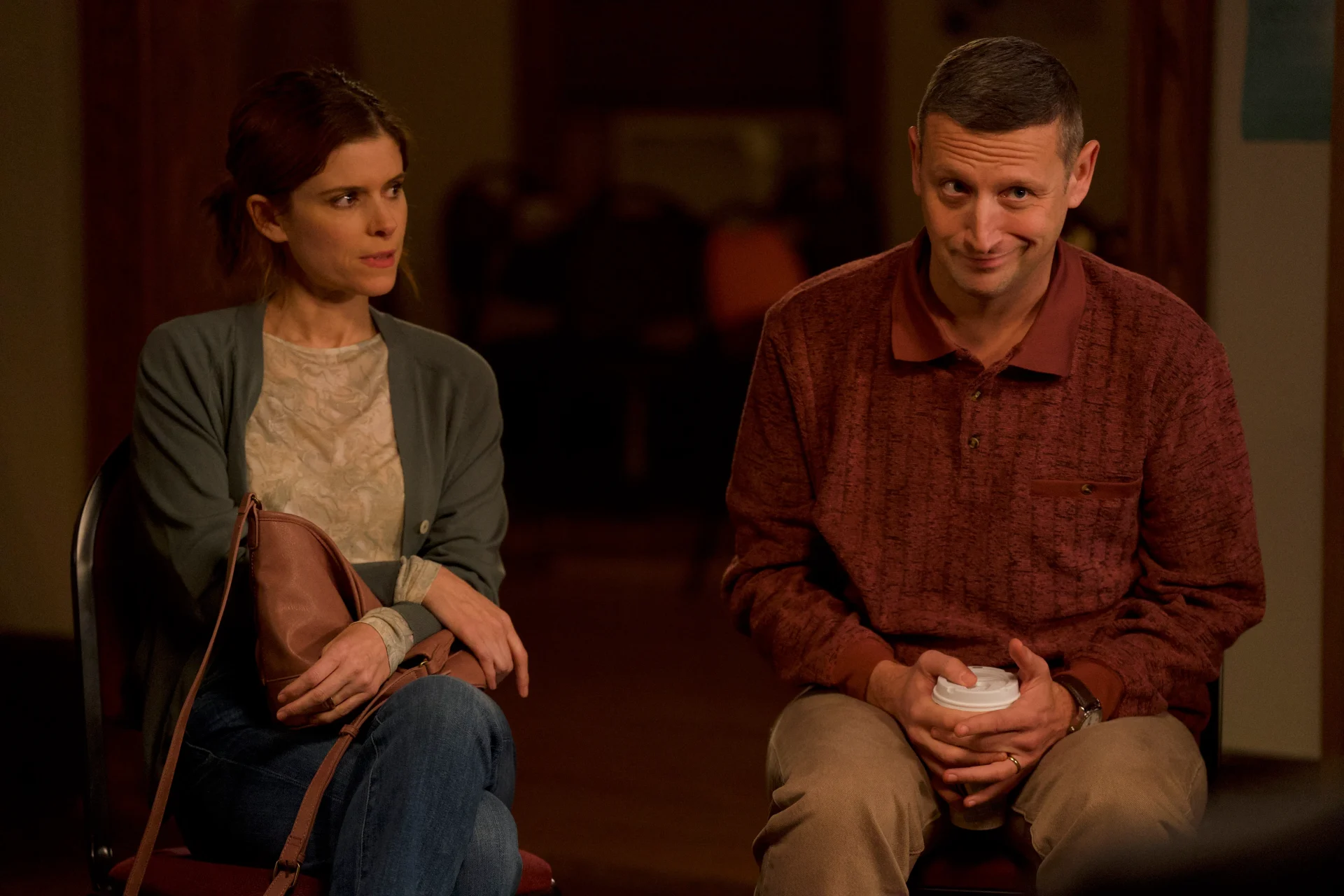It’s no secret that Hollywood has been somewhat reluctant to dump resources into comedies that do not have a definitive genre slant, as these projects were among the first to be sent directly to streaming services during the fluctuation of distribution methods. Despite the emergence of more unique, diverse comedic voices than ever before in the history of cinema, a straightforward comedy isn’t enough to solidify a theatrical release; those coveted spots are typically reserved for films that appear to be definitely “cinematic” due to some moment of spectacle. While the time may have passed in which defining 21st-century comedic filmmakers like Adam McKay, the Farrelly brothers, David Gordon Green, or Paul Feig could generate buzz based solely on their name, it has encouraged the next generation of humorists to embrace their idiosyncrasies in hopes of standing out.
There’s no other way to describe the style of Tim Robinson than “uncompromising;” while Robinson’s awkward, surrealist style of breaking down social normalities proved to be too avant garde for the “Saturday Night Live” writer’s room, he eventually found success of Netflix with a sketch show that fixated on the escalation of gags. Robinson’s delivery does not just consist of a straightforward punchline, in which he intends to elicit expected laughter. Instead, he pushes every moment to the extreme, revels in the uncomfortability, and manages to turn his audience’s awkward chuckles into wild howling.
What’s most remarkable about “Friendship” is that writer/director Andrew De Young has constructed a narrative in which Robinson’s persona is well-suited to be the protagonist. One of Robinson’s most endearing qualities is his ability to “say the quiet part out loud;” the notion of a character who doesn’t understand latent social codes, is unable to feign interest in dull topics, and can’t accept the rampant narcissism that everyone else abides by is the perfect point-of-view role for a comedy about the unspoken tenacity of adult relationships. Robinson’s brilliance is that he can raise insightful points, and generally has a corner of truth within his arguments. However, his behavior is so wild and overwhelming that at no point does the viewer grant him the level of sympathy that would usually be given to a character in such thoroughly humiliating situations.

“Friendship” stars Robinson in the role of Craig Waterman, a marketing developer whose life has congealed into a static routine. While there’s nothing to suggest that his marriage to his wife Tami (Kate Mara) or the dynamic with his teenage son Steven (Jack Dylan Grazer) is particularly toxic, Craig has frequently found it a challenge to spend time with the people he cares about. Craig’s life is altered by an anomalous incident, in which he befriends his charismatic new next-door neighbor, Austin Carmichael (Paul Rudd), a local weatherman preparing to take on the coveted morning shift. Although Austin is initially welcoming to Craig, inviting him into his close circle of friends, their relationship takes a downward spiral after an awkward incident.
As simple as the premise may seem, “Friendship” speaks to the unspoken calamity that making new friends as an adult is a challenge. For a character like Craig, trying something outside of the ordinary is a significant feat, and not one that can be accomplished on his own. While Austin’s bizarre interests and seemingly perfect life are exaggerated to a comic degree, it becomes evident that Craig wants to recapture the feeling of freedom he had when he was encouraged to explore new opportunities. The sharp turn, in which the relationship is severed, makes for a hilarious few sequences in which Craig finds it impossible to replicate those emotions when left to construct the scenarios by himself.
Robinson’s performance in “Friendship” is excellent because his most aggressive qualities are inadvertent. Given that Craig has never fully been at home in a casual setting, even his most minor infractions may feel more pointed than intended. Simply observing the way that Craig conducts his life is already funny, but it rises to a different level when his frustration with the stagnation of his life turns into anger. While marketing materials for “Friendship” may have compared the film to the heartwarming, raunchy sentimentality of “I Love You, Man,” Craig’s character arc bears more in common with that of Travis Bickle in “Taxi Driver.”

“Friendship” doesn’t feel like just a series of sketches that were edited together, but it is impressive that it is able to touch on multiple areas of comedic interest. Although there are moments of raunchiness, drug use, and violence, the intention of the jokes is rarely shock value. Rather, it’s interesting to see how these topics are filtered through Robinson’s unique way of viewing the world. While Craig is never depicted as unintelligent, the suggestion is that his enthusiasm on how to fix problems is almost always undercooked. “Friendship” announces where the jokes are headed, but finds the humor in watching Robinson’s brazenly reach his conclusions.
Robinson’s performance works as well as it does because his co-stars seemed attuned to the strange frequency at which the rest of the film operates. Mara’s blunt, blissfully unsentimental line deliveries make her scenes with Robinson particularly sharp, and at times rather sweet. Glazer’s inability to capture the seemingly inscrutable interests of a teenage boy leads to some great payoffs, but it’s ultimately Rudd who is given the most difficult task. Despite having incited the film’s conflict, Rudd never depicts Austin as being so cruel that there’s an imbalance of power within his scenes with Robinson. Craig and Austin are both pretty “out there” to begin with. The difference is that Craig is unable to mask who he is, and can’t physically bring himself to be inauthentic.
“Friendship” exploits everyday interactions in familiar social settings for the sake of surprisingly relatable humor, but also manages to trek out into more uncertain territory when it develops into a mystery, a psychedelic journey, and a crime thriller. DeYoung has bent the “buddy comedy” formula into a shape where the audience is able to suspend their disbelief, even if they may never be able to anticipate what’s coming. While it’s certainly in conversation with the other works in Robinson’s career thus far, “Friendship” isn’t “inside baseball.” It’s staggeringly original, and by far the funniest film of 2025.






![Nasumice [2018] Review: A Beautifully shot film that never rises above its ideas](https://79468c92.delivery.rocketcdn.me/wp-content/uploads/2020/11/Nasumice-Adrift-highonfilms-1-768x448.jpg)
![The Courtroom [2022] Tribeca Review: Captivating Courtroom Drama Gets Elevated with Good Acting & Writing](https://79468c92.delivery.rocketcdn.me/wp-content/uploads/2022/06/The-Courtroom-2022-Tribeca-768x432.jpg)
